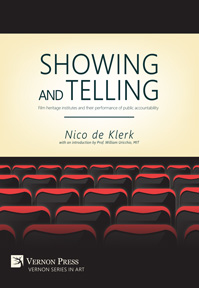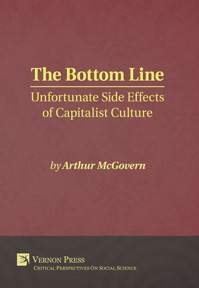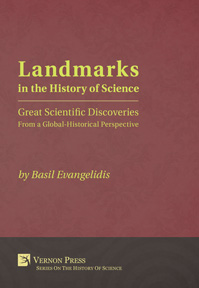Search
Browse
by Publication status
by Subject
Anthropology (26) Art (124) Business and Finance (26) Cognitive Science and Psychology (54) Communication and Journalism (45) Economics (62) Education (66) History (149) Human Geography (22) Interdisciplinary (42) Language and Linguistics (129) Law (16) Music Studies (18) Philosophy (157) Political Science and International Relations (103) Sociology (304) Statistics and Quantitative Methods (20)by Series
Series in Literary Studies (65) Series in Philosophy (59) Series in Education (51) Series in Sociology (42) Series in Politics (32) Series in World History (32) Bridging Languages and Scholarship (31) Series in Language and Linguistics (25) Cognitive Science and Psychology (20) Series in American History (20) Series in Philosophy of Religion (20) Series in Art (19) Critical Perspectives on Social Science (16) Series in Cinema and Culture (16) Curating and Interpreting Culture (15) Series in Critical Media Studies (14) Series on the History of Art (14) Series in Anthropology (13) Series in Business and Finance (13) Economics (13) Series in Music (12) Series in Communication (9) Series in Performing Arts (9) Philosophy of Personalism (8) Series in Law (8) Series in Economic Methodology (7) Series on Climate Change and Society (7) Women's Studies (7) Classics in Economics (6) Series in Economic Development (6) Philosophy of Forgiveness (5) Series in Built Environment (5) Series in Economic History (5) Series in Philosophy of Science (4) Series in Social Equality and Justice (4) Series on the History of Science (4) Serie En Estudios Literarios (3) Serie en Sociología (3) Series in Contemporary History (3) Series in Creative Writing Studies (3) Series in Design (3) The Interdisciplinary Built Environment (3) Serie en Comunicación y Medios (2) Serie en Historia (2) Series in Heritage Studies (2) Series in Innovation Studies (2) Series in Philosophy of Race (2) Serie en Ciencias Políticas (1) Serie en Entorno Construido (1) Serie en Estudios Culturales (1) Serie en Filosofía (1) Serie en Filosofía de la Ciencia (1) Serie en Música (1) Series in Classical Studies (1) Series in Economics of Technological Change (1) Series in Urban Studies (1)by Language
English Spanishby Author
Financial Management
A practical and accessible introduction for students and entrepreneurs
John Smeur, Windesheim University College, Netherlands
Availability: Discontinued
368pp. ¦ $45 £30 €35
This book introduces key concepts and methods in business financial management. It consists of two parts. Part one is structured around start-up investments and key financing decisions facing entrepreneurs during their first year in business. The instruments examined include the investment budget, financing plan, the opening balance sheet, financial planning for profits and liquidity, the closing balance sheet and a complete treatment of ratio analysis. Part two is about cost prices, budgeting and variance analysis, profit calculation methods and break-even point and, finally, calculations of the returns to alternative investment options. All of these subjects are treated in an accessible, stepwise manner and are accompanied with illuminating examples. The combination of theoretical rigor and simple explanations makes the present volume indispensable for both students and entrepreneurs.
Showing and Telling: Film heritage institutes and their performance of public accountability
Nico de Klerk, Ludwig Boltzmann Institute for History and Society, Austria
Availability: In stock
328pp. ¦ $50 £38 €45
Showing and Telling is the first academic work to explore how publicly funded film heritage institutes account for their mandate in their public activities. It does that by inspecting and evaluating public presentations and visitor information about these presentations. The research was done by juxtaposing two complementary approaches. The first is grounded in the author’s experience as a collection researcher and curator and makes a case for the richness of archival objects usually ignored for their lack of aesthetic qualities. The second is a survey of the public activities of 24 institutes worldwide, based on their websites, in February 2014; the latter constitutes a unique source. This original work uncovers the disconnect between the curatorial activities of these institutes and their missions. A central finding is that publicly funded film heritage institutes give their public an inadequate sense of cinema history. By and large they offer a mainstream-oriented repertoire of presentations, overwhelmingly consisting of feature fiction; they show a disproportionate amount of recent and new works, often through commercial distribution; their screenings consist of an unexplained melee of technological formats (sometimes substandard); and their presentations monotonously frame film as art, although their professed aesthetics are mostly of a cinephile nature and rest on received opinion. Specific materials, early cinema in particular, and specialist knowledge, both historical and methodological, are largely restricted to their network of peer communities. Wholesome transfer of full knowledge, in word and image, to the public is not a major concern. Showing and Telling concludes with recommendations for curatorial activities. Firstly, with a conceptual apparatus that allows a more complete understanding of film heritage and its histories. Secondly, with a plea for rethinking the institutes’ gatekeeper function and for developing more varied, imaginative, and informative public presentations, both on site and online, that reflect the range of their collections and their histories.
The Bottom Line: Unfortunate Side Effects of Capitalist Culture
Arthur McGovern, Nichols College
Availability: In stock
212pp. ¦ $50 £38 €45
This monograph explores the role of culture in modern societies and the side effects that result when that role is distorted. The basic premise of this book is that many of the dominant cultural characteristics of modern life, like the ideologies and values associated with materialism and consumer capitalism, are cultural phenomena with influences that are in many ways problematic and in some ways downright detrimental to our sustained societal well-being. I argue in this book that the globalized capitalist economic system has become increasingly efficient in terms of scale and scope, but has also become less humane in many regards; less connected to human needs and concerns. Of particular concern is the encroachment of economic interests into areas of human society that traditionally have been free from profit motives, or at least only minimally influenced by them; areas such as scientific research, the justice system, and even family relationships. I suggest that there is a slow but steady intrusion into these areas of human life that were once considered off-limits to naked economic incentives and calculations. This intrusion puts the idea of America as a free and democratic society increasingly at risk when private economic stakeholders meddle in the political and cultural areas of society in ever more insidious ways to further their own enrichment at the expense of the public. Furthermore, the vast capitalist economic system is in many ways increasingly disconnected or disembedded from the contexts and regulations of traditional social relations as in the past.
Free Will, Neuroethics, Psychology and Theology
Geran F. Dodson, University of North Georgia
Availability: In stock
170pp. ¦ $60 £50 €57
The topic of human free will has received more attention in the past several years due to the important discoveries of neuroscience but no consensus of opinion is evident in related disciplines. The traditional approach to understanding free will in philosophy employs conceptual analysis to determine whether humans have freedom of choice. Theology affirms that every person has free choice although God is somehow behind all human decisions. Evolutionary psychology points to human behavior as the product of biological processes and antecedent events. And neuroethics attempts to define what it means to be a thinking moral agent by investigating how neurons in the brain and chemical interactions combine to produce conscious actions. An assessment and evaluation of these various positions is given in light of the evidence. The issue of whether a person can be held morally responsible for their actions hinges on whether those actions originate from free will or are the result of determinism. Theology makes assumptions of the existence of an absolute deity that has a hand in human decision making, but there is no agreement regarding the nature of that intervention. Recent scientific discoveries confront traditionally held religious beliefs and necessitate the creation of a new theology and articles of faith.
Landmarks in the History of Science
Great Scientific Discoveries From a Global-Historical Perspective
February 2017 / ISBN: 978-1-62273-200-5Availability: In stock
204pp. ¦ $50 £38 €45
Landmarks in the History of Science is a concise history of science from a global and macro-historical standpoint. It is an account of grand theoretical revolutions, such as heliocentrism, atomism, and relativity. But, more importantly, it is also a story of the methodological transitions to the experimental, mathematical, constructivist and instrumental practices of science. It begins with Ancient Greek science, as one of the first self-conscious, comprehensive and well-documented scientific endeavors at the global level. The numerous contributions of the Greeks, in philosophy, mathematics, geometry, geography and astronomy, momentous as they were, were fruits of leisure rather than industry. It then examines the history of science in China and China’s exchanges with India and Islam. A systematic and collaborative scientific effort is the hallmark of Chinese science. The contributions of the Chinese in medicine, printing, manufacturing and navigation invariably predate and outshine those of western contemporaries. Attention then shifts to the age of oceanic discoveries, which created the inexorable presuppositions for the genesis of global trade and a world system. From the inner organs of the organisms to the outer regions of Earth, Renaissance science was ubiquitous. The importance of inter-cultural scientific syncretism is highlighted, with the Iberian Peninsula as meeting point and crossroad of mutual affection between Arab, Jewish and European culture. Discoveries and inventions in metallurgy, electromagnetism and the science of petroleum set the scientific basis for the industrial revolution. The logic of the industrial revolution dictates developments in information technologies that culminate with the invention of modern computers. A dedicated chapter on the history of modern scientific conceptions of the universe showcases the subtle links in the fabric of seminal ideas in physics and astronomy. The book concludes with some reflections on the relationship between philosophy and the history of science. Following Kuhn and Latour, this discussion centers on the characteristics of continuities, ruptures and paradigmatic transitions in science.






